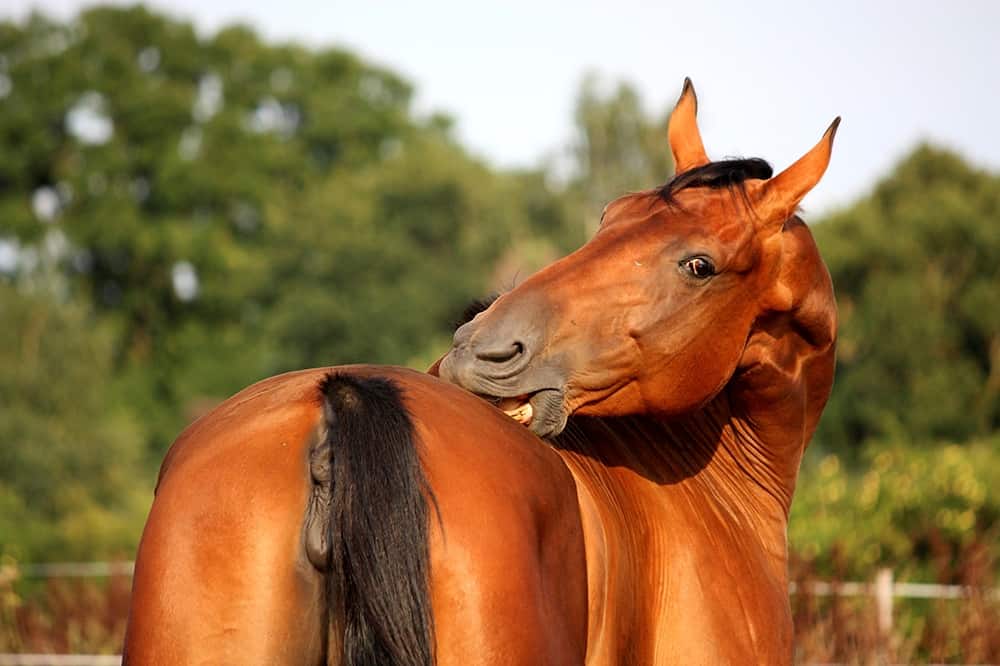Researchers Break Down Horses’ IBH Reactions

For years, people have assumed this meant that horses affected by insect bite hypersensitivity (or IBH) just “react” to fly bites while others don’t. But a new international study is revealing that, actually, all horses probably react: It’s just that some of them react in a way that causes them to become tolerant.
In a pioneering study, researchers from the Netherlands have determined that insect bites can cause some horses to respond with inflammation and itching while others react with cellular-level defense mechanisms. Dietmar M.W. Zaiss, PhD, now affiliated with the Institute of Immunology and Infection Research at the University of Edinburgh, Scotland, said these itch-free horses aren’t just tolerant.
Tolerant means the horse’s body doesn’t have any reaction to the bites at all. But, at least in the early stages of exposure to the bites, horses’ bodies are reacting. They’re actively fighting off the allergen “as if it were an intracellular pathogen,” Zaiss said.
“This original response will then eventually lead to tolerance and ignorance (even less cellular acknowledgement of the allergen than tolerance),” he said. “Our study is the first to show how such tolerance is induced.”
In their study, Zaiss and colleagues investigated Shetland ponies with sweet itch. They compared their skin to that of other Shetland ponies that did not have sweet itch. The scientists injected all the ponies (during and outside of IBH season) with biting midge extracts and then performed skin biopsies from the injection areas at various times after the injection. As expected, the biopsies showed a strong allergic reaction (IgE, white blood cells) in the sweet itch ponies. But to their surprise, the researchers found a strong immune response in the healthy ponies’ skin cells, as well.
They called the two reactions “Type 1″ and “Type 2″ immune responses. In Type 1, the ponies’ T-cells (a special type of white blood cell that can kill infected cells in the body) sent out fighting mechanisms intended for bacterial and viral infections, Zaiss said. As a result, the body successfully prevented a Type 2 (allergic) response. This means the IBH horses had a Type 2 response, while non-IBH horses had a Type 1 response.
“In those individuals that react with a Type 1 biased, allergen-specific immune response, regulatory T-cell populations can suppress local allergic immune responses and induce allergen-specific immune tolerance,” the researchers reported.
Simply put, those T-cells went to work stopping the allergy before it could even get started and then trained the cells to just ignore the allergen altogether.
And that’s exciting news for developing prevention methods, Zaiss said. “I believe via this approach a vaccine could very easily be developed,” he told The Horse. “So a key aspect would be to take horses that have not yet been exposed to the allergen and skew their immune responses toward the protective direction. In this way, we will then be able to prevent the development of allergies in these horses at a later time point.”
The study, “Allergen-Specific Cytokine Polarization Protects Shetland Ponies against Culicoides obsoletus-Induced Insect Bite Hypersensitivity,” was published in PLoS One.

Written by:
Christa Lesté-Lasserre, MA
Related Articles
Stay on top of the most recent Horse Health news with











